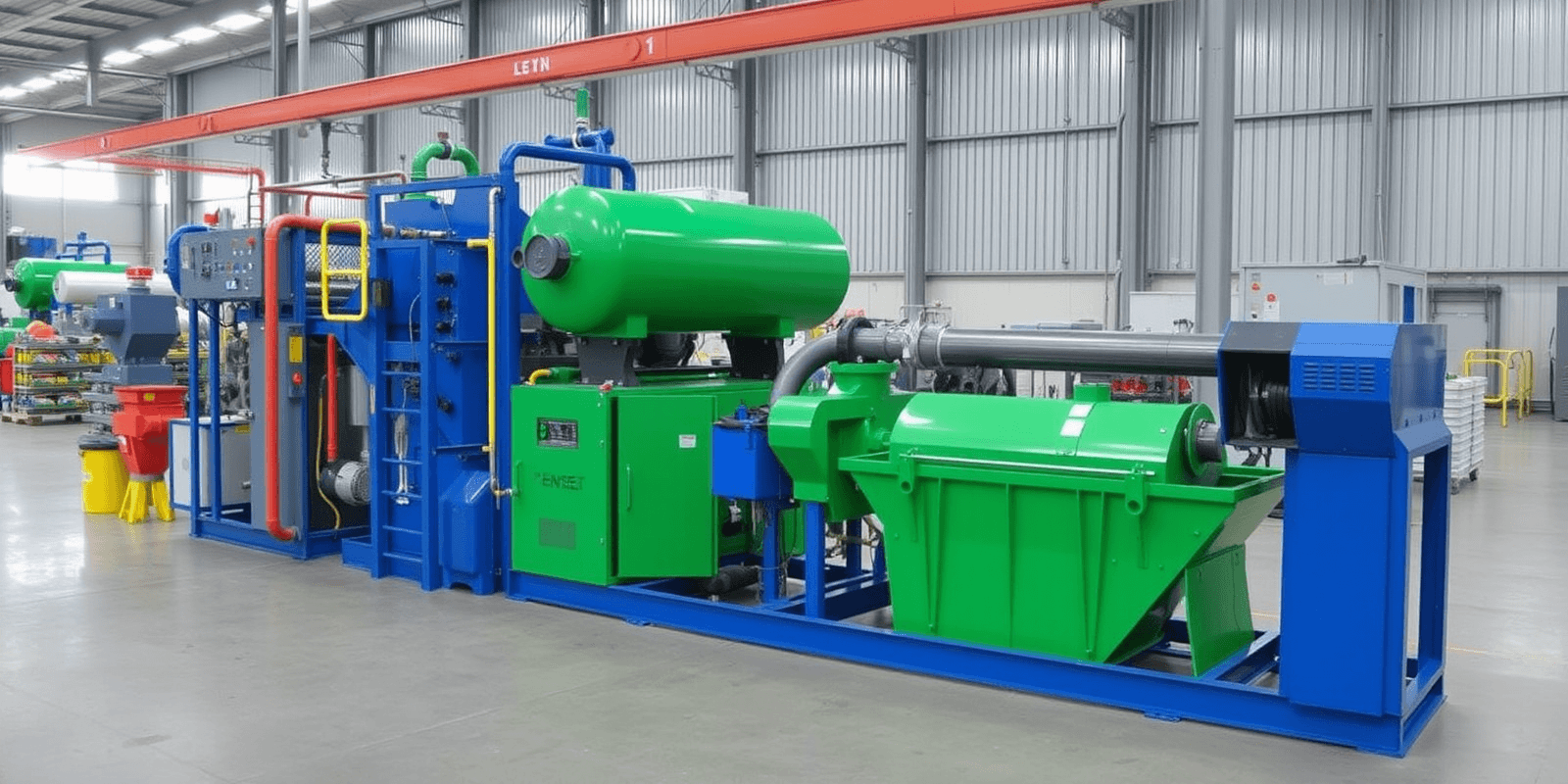Physical Address
304 North Cardinal St.
Dorchester Center, MA 02124
Physical Address
304 North Cardinal St.
Dorchester Center, MA 02124

In today’s rapidly evolving world, the need for effective waste management strategies cannot be overstated, particularly as global plastic production continues to soar. Industrial plastic recycling systems play a vital role in tackling the plastic waste crisis while simultaneously promoting sustainable manufacturing practices. This article delves into the key features of these systems, paying special attention to scale and automation, which are essential components that enhance their efficacy and efficiency.
The term “scale” in industrial plastic recycling refers to the capacity of a facility to process plastic waste effectively. This includes various factors such as throughput, the range of plastic types that can be processed, and the capacity to manage operational complexities. The scale directly impacts the economy of operation, enabling facilities to leverage economies of scale for more competitive pricing and greater throughput.
1. **Small-Scale Recycling Facilities**: These facilities typically serve local communities or specific sectors and often focus on specific types of plastic, such as PET or HDPE. They may employ manual sorting and processing techniques, resulting in lower efficiencies but greater flexibility to adapt to local needs.
2. **Medium-Scale Recycling Facilities**: These systems often process a larger variety of materials with higher capacities. They may integrate some level of automation to enhance efficiency, allowing for better sorting and processing of diverse plastic types while achieving a balance between cost and output.
3. **Large-Scale Recycling Facilities**: These industrial giants are capable of processing thousands of tons of plastic waste daily. They utilize advanced technologies that enable high levels of automation, sorting various materials through sophisticated robotics and artificial intelligence. Their output is often aimed at supplying high-quality recycled plastic materials back into the manufacturing cycle, closing the loop on plastic use.
Automation in industrial plastic recycling encompasses the use of technology to perform tasks that would otherwise require human intervention. This can range from simple mechanical systems to advanced AI-driven processes that improve efficiency, reduce human error, and enhance safety.
1. **Automated Sorting Technologies**: Advanced sorting technologies are critical for separating different types of plastics. Automated systems may include conveyor belts equipped with sensors, optical technology, and robotic arms that can identify and sort plastics at high speeds, significantly reducing contamination and increasing yield.
2. **Artificial Intelligence Integration**: AI plays a transformative role in modern recycling systems. Machine learning algorithms can optimize sorting processes by analyzing the types of plastics being processed and adjusting operations in real time. This allows for dynamic adaptability to changes in waste streams, maximizing operational effectiveness.
3. **Process Optimization**: Automated controls can streamline various processing stages, from shredding and washing to pelletizing. With automation, facilities can maintain consistent quality in their output while minimizing downtime due to unexpected mechanical failures or suboptimal processing conditions.
4. **Data Collection and Analysis**: Integrated automation systems frequently include data logging capabilities, facilitating real-time monitoring and performance assessment. This collected data can be analyzed to identify bottlenecks, optimize workflows and enhance predictive maintenance protocols, extending machinery life and improving operational reliability.
While increasing scale and automation in plastic recycling has notable advantages, several challenges emerge that must be addressed:
The initial investment required for comprehensive automation and scaling can be substantial. Many smaller operations may struggle to secure the necessary capital to upgrade their systems, often resulting in reliance on less efficient manual processes.
The economic viability of scaled and automated recycling facilities heavily depends on stable demand for recycled plastics. Fluctuations in market prices and competition from virgin plastic production can pose significant risks to sustainability efforts.
Industrial plastic recycling systems are at the forefront of addressing the global challenge of plastic waste. Understanding the features associated with scale and automation provides essential insights into how these systems can optimize processing efficiency and contribute to a circular economy. As technology continues to advance, the role of automation will likely expand, making recycling systems more effective than ever. However, mindful consideration of the associated challenges is crucial to ensure the long-term success of these systems.
As we move forward, scaling and automating plastic recycling will be essential in creating sustainable industrial practices and ensuring the longevity of our planet’s resources.
– [World Economic Forum: The New Plastics Economy](https://www.weforum.org/agenda/2016/01/the-new-plastics-economy)
– [National Recycling Coalition: Recycling Industry Market](https://nrcrecycles.org/recycling-industry-market)
– [McKinsey & Company: The Future of Recycling](https://www.mckinsey.com/business-functions/sustainability/our-insights/the-future-of-recycling)
– [European Commission: Circular Economy Action Plan](https://ec.europa.eu/environment/circular-economy/)
– [Plastic Pollution Coalition: The plastic crisis](https://www.plasticpollutioncoalition.org)
By understanding the complexities and technological advancements in industrial plastic recycling, stakeholders can make informed decisions that lead to more sustainable practices and a healthier environment for future generations.